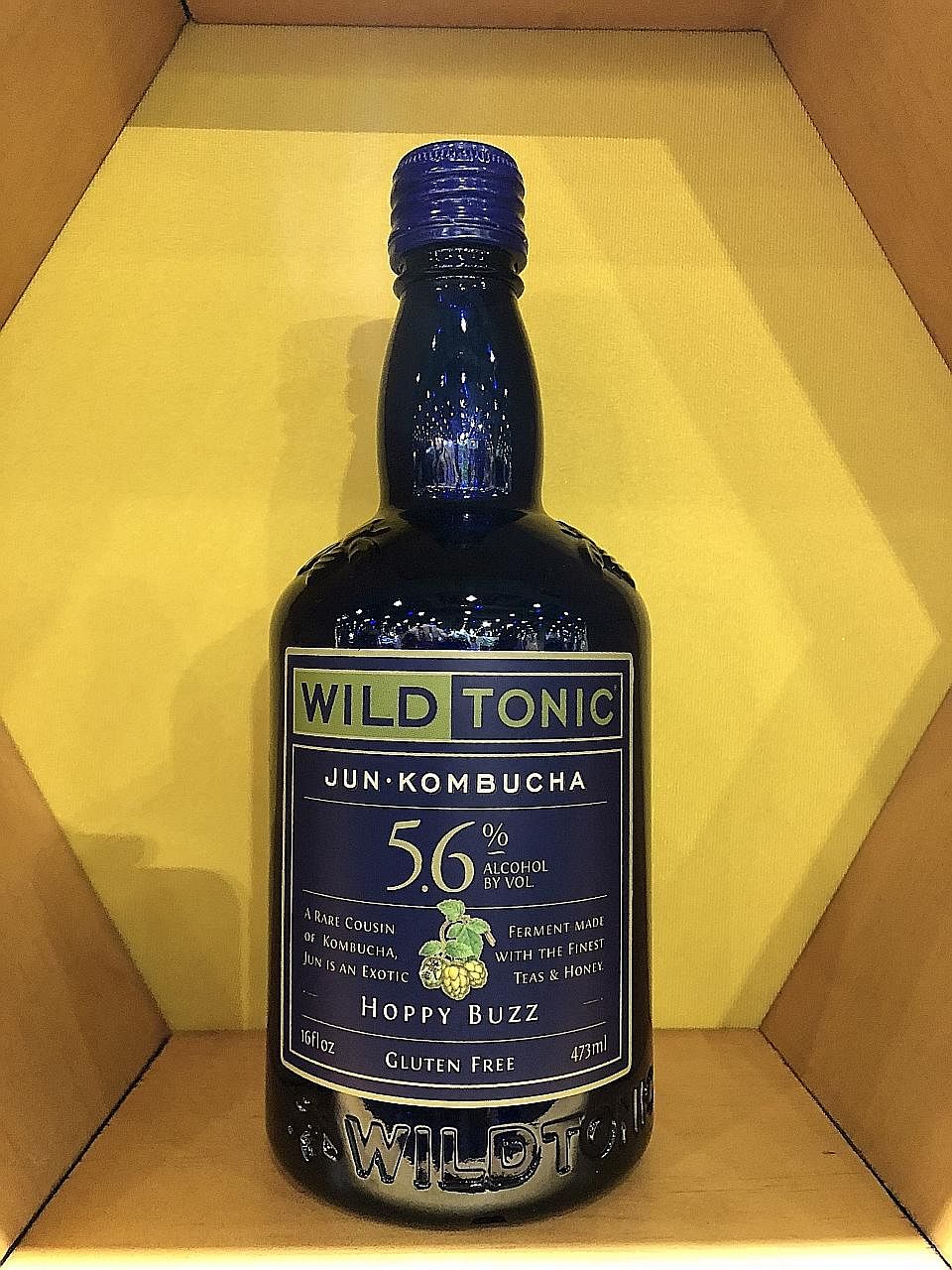Big Soda eyes making kombucha mainstream
But smaller producers say the drink, which started as a home-brewing kit, has naturally grown probiotics and cannot be mass-produced
High-fructose corn syrup, the ubiquitous sugar substitute blamed for slowly killing Americans through diabetes, obesity and heart disease, has been under assault for almost 15 years.
One of its biggest users - the carbonated soda ecosystem - has been shrinking in the face of public health concern and plummeting soda consumption, now at its lowest point in three decades.
Industry giants Coca-Cola Co and PepsiCo Inc, long aware of this situation, have swallowed up sports drinks, flavoured waters, juices and seltzer companies in a bid to diversify.
And while they have seen better news from their beverage units, the search for the latest thing continues. For the past few years, that thing has been kombucha.
Supposedly Chinese in origin, kombucha is referred to by its more enthusiastic adherents as the "tea of immortality".
Less mystically put, it is sweetened tea combined with a symbiotic colony of bacteria and yeast that is allowed to ferment. As a result, the lightly effervescent beverage has a slight vinegary taste.

These "probiotics" are touted as key to maintaining a healthy microbiome - fancy speak for your digestive system.
That healthy branding is one reason Big Soda is so keen - regardless of whether it is actually true.
The other reason is that kombucha is crushing it. This year, sales are up 43 per cent over all of last year, and are on course to break US$1 billion (S$1.4 billion) for the first time, according to Nielsen.
One top seller, Brew Dr Kombucha, said its growth this year could be as much as 75 per cent. Mr Matt Thomas, the Portland, Oregonbased company's owner, said he will ship more than one million bottles a week by the end of the year.
"The carbonated soft-drink market is getting hammered from all sides," said Mr Tom Vierhile, innovation insights director at GlobalData. "Consumers are going towards beverages that are organic and natural - which is where kombucha came from."
Typically made from tea, kombucha usually has caffeine, though some makers incorporate fruit juice to make it more approachable.
Just five years ago, PepsiCo invested in KeVita, which is now No. 2 in the kombucha drink market. In 2016, the soda giant bought it outright.
Ms Becca Kerr, a senior vicepresident for PepsiCo's North American nutrition, fruit and vegetable portfolio, said the company continues to follow trends and look for other companies to link up with or buy.
Meanwhile, PepsiCo's Naked Juice and Tropicana lines have versions with probiotics added after pasteurisation.
It will "continue to look for easy ways consumers can incorporate it", Ms Kerr said.
The same year Pepsi spotted KeVita, Coca-Cola invested in Health-Ade, also one of the top five kombucha makers. Since then, Coca-Cola has acquired or taken stakes in start-ups such as Honest Tea and Fairlife Dairy.
Another investment was in Suja Life, maker of high-pressure processed juices, kombucha and drinking vinegars.
According to Dr Sheldon Rowan, a scientist at the Jean Mayer USDA Human Nutrition Research Centre on Ageing at Tufts University, "several parts of our health and wellbeing are connected to the health of our guts, which include the health of our gut bacteria".
But while "some studies do indicate positive effects of probiotics, (those) are usually administered in very controlled fashions. Plenty of studies fail to show any measurable benefits".
Nevertheless, some 65 per cent of American consumers believe probiotics are good for them, while 38 per cent said they buy products containing them, according to consumer surveys by GlobalData.
Among millennials, the percentage of probiotic buyers jumps to 66 per cent.
"Millennial dietary habits stand to revolutionise a channel that has been anything but health-conscious in the past," Euromonitor said in a recent report on convenience stores, where kombucha-style drinks are beginning to take hold.
Kombucha started as a home-brewing kit with photocopied instructions and a mason jar containing a gelatinous blob.
Making the drink was labour-intensive, which opened the door to entrepreneurs.
One of those was GT's Living Foods, arguably the most famous of all kombucha purveyors and still top dog in sales, claiming about 55 per cent of market share.
"You're seeing Big Soda shaking in their boots because market share in soda continues to decline," said Mr George Thomas Dave, the company's founder and chief executive officer. "They are desperate to buy the next trend."
That desperation, however, may undo what Mr Dave has helped build over the past 20 years, he said.
"Kombucha is a live, hand-crafted offering," he explained. "It can't be mass-produced."
But consumer confusion about naturally grown probiotics, versus the industrial versions squirted in after pasteurisation, created an opening for Big Soda.
"They are throwing it in everything and slapping it on the label and creating a good-for-you halo," Mr Dave said.
Cans, carbonation, laboratory-made probiotics, concentrate - "it goes against why people are becoming fanatics about kombucha", he said.
"As soon as you strip it of its nutritious value, it becomes a sparkling, lightly sweet tea."
The kind of investment necessary for Big Soda to really take a bite out of the kombucha market seems unlikely, according to Mr Vierhile.
"Kombucha sales are not big enough now to move the overall sales needle at the soft-drink giants, which means sales will have to increase dramatically for this to make financial sense," he said.
"Non-alcoholic beverages are like the fashion industry," he added. "Stuff comes into favour, then falls out of favour - it's very accommodating to entrepreneurs who have hustle."
BLOOMBERG
Join ST's Telegram channel and get the latest breaking news delivered to you.
A version of this article appeared in the print edition of The Sunday Times on October 07, 2018, with the headline Big Soda eyes making kombucha mainstream. Subscribe
